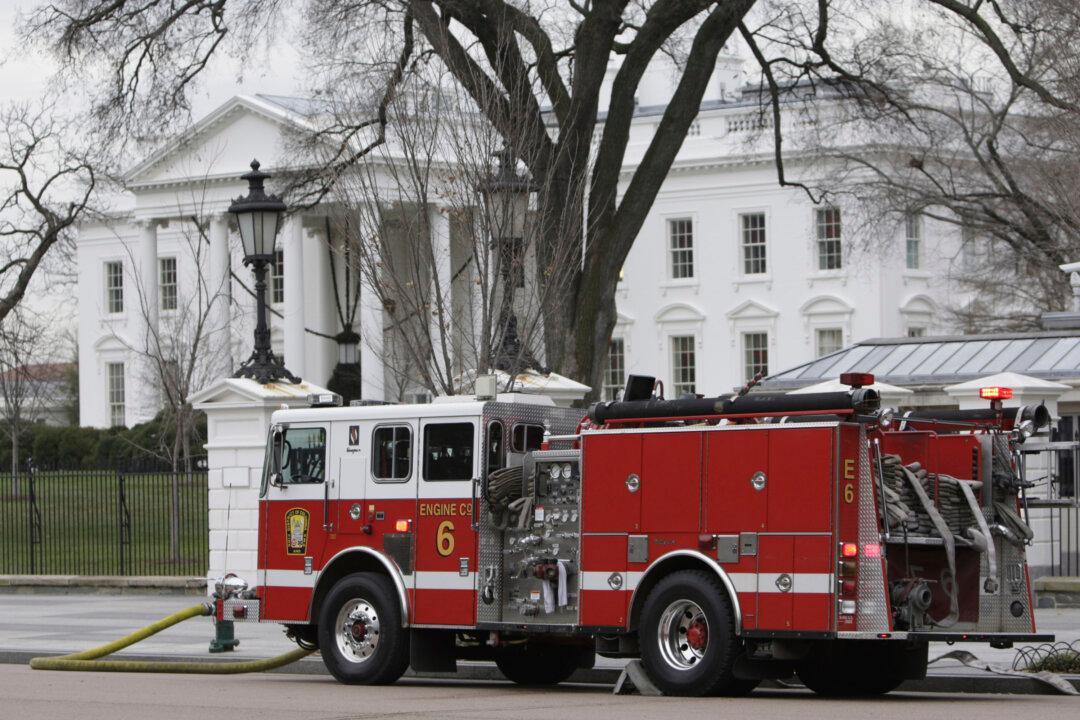Emergency responders arrived at the White House on Jan. 15 after a false report of a structural fire at the executive residence.
Noah Gray, spokesman for the District of Columbia Fire and Emergency Medical Services Department, told NTD News that the city’s Office of Unified Communications received a 911 call at about 7:03 a.m. claiming that there was a structure fire at the White House.





